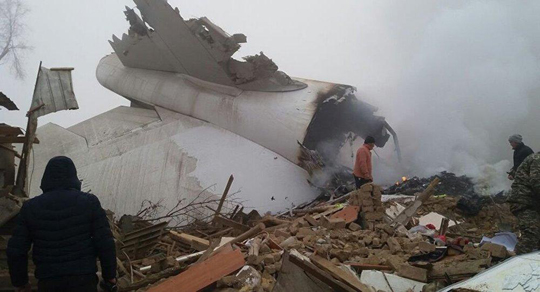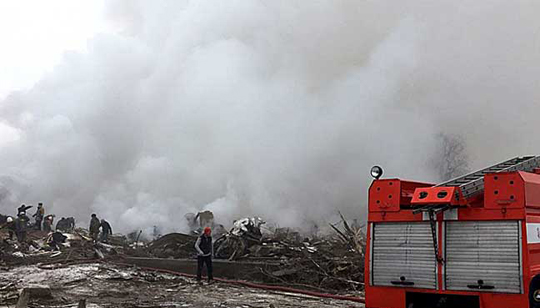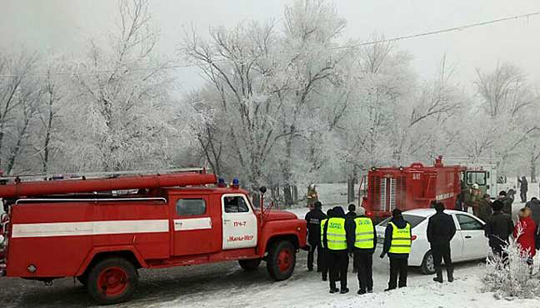Bishkek, Jan 16: A Turkish Airlines cargo plane crashed into a village near Kyrgyzstan's main airport today, killing 32 people and destroying homes after attempting to land in thick fog, authorities said.

The majority of the dead were from the village of Dacha-Suu where the cargo plane crashed at around 7.30 am local time, a spokesman for the country's emergency services, Muhammed Svarov said.
The total number of dead "could be bigger" Svarov said, adding that authorities had launched a huge search and rescue operation.
"Major work is underway," Svarov said. "The damage to infrastructure in the village is significant."
At least four pilots on the flight, which was travelling from Hong Kong to Istanbul via Kyrgyzstan's capital Bishkek, were among the dead, the emergency services ministry said, with one pilot's body yet to be found.
Around 43 houses were damaged by the crash, according to the emergency services ministry, which said that the accident sparked fires that spread, but have now been localised.
"The plane crashed into the houses, it killed entire families," one eyewitness said, speaking on condition of anonymity.
"There's nothing left of the houses, people were killed with their whole family, their children. Many people were sleeping."
The country's Manas airport has been closed and flights cancelled until evening at the earliest, airport authorities said.
The government said in a statement that Deputy Prime Minister Moukhammetkali Aboulgaziev visited the scene, accompanied by the Ministers of Emergency Situations and Transport.
Kyrgyz President Almazbek Atambayev cancelled his visit to China to return to Bishkek, according to Kyrgyz media.








Comments
Add new comment